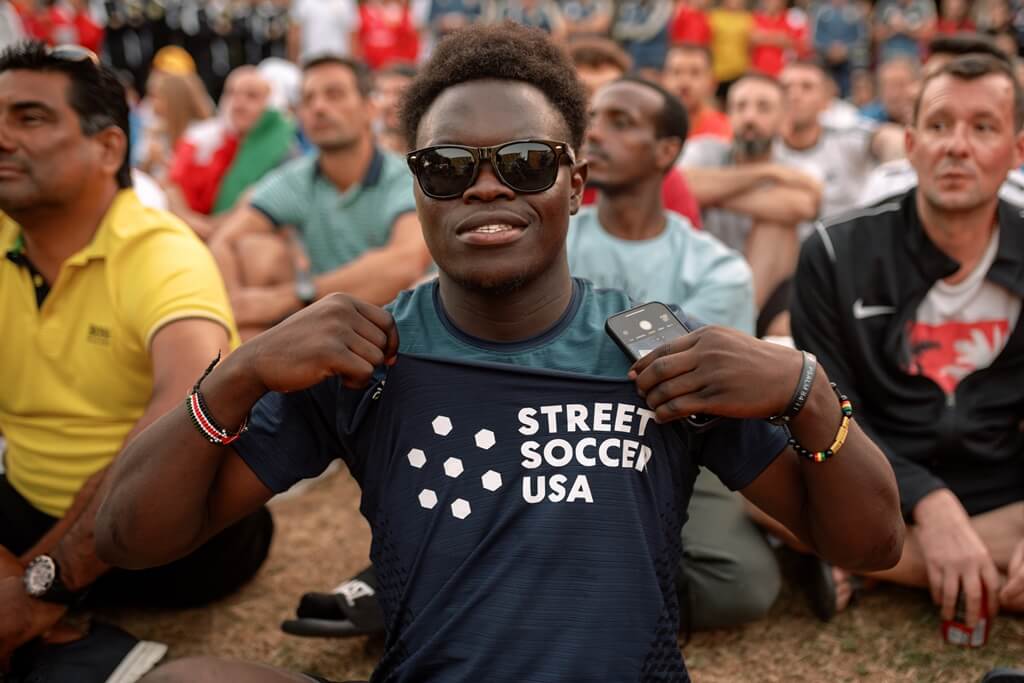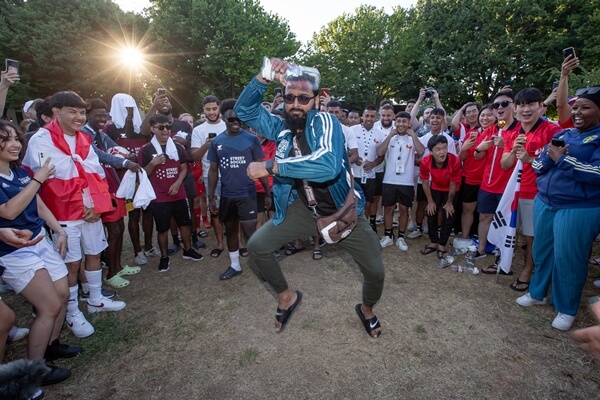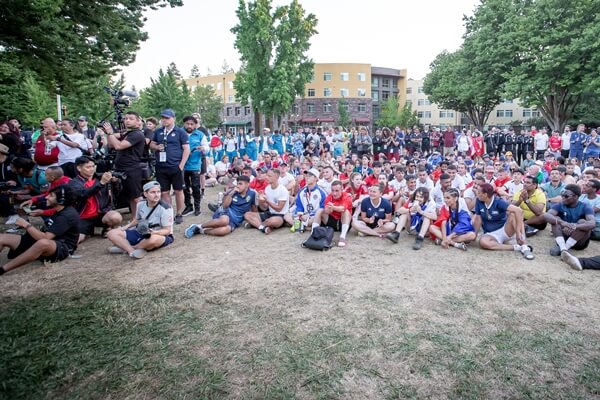
A World Cup unlike any other deserves a draw unlike any other. So instead of the standard theater or concert hall, Homeless World Cup organizers set up tables on a lush and inviting lawn ringed by trees on the campus of Sacramento State University.
Instead of a red carpet, there was a pre-draw picnic, music and dancing. And instead of a stiff and silent audience of coaches and executives, there were several hundred eager players crowding in front of the glass bowls and ping-pong balls, waiting to see who they’d be facing on the field.
The 18th Homeless World Cup, the first after a four-year hiatus and the first to be contested in the U.S., kicks off Saturday morning in California’s state capital. Friday’s draw set the event in motion. From July 8 until men’s and women’s champions are crowned on July 15, 40 national teams (28 men and 12 women) will play round-robin and knockout matches in the tournament’s fast and frantic 4 v 4 format.
The men’s tournament will start with four groups of seven teams each, then progress to a second group stage featuring 16 title contenders (four groups of four) and another 12 teams (four groups of three) vying for placement in one of the HWC’s consolation brackets. The top two finishers in each of the four-team, second-stage groups will play off for the coveted Nelsen Way award. The remaining 20 sides will continue competing through the tournament’s final day at Hornet Stadium as they pursue two additional prizes.
The Homeless World Cup trophy was carried to the draw by Mexico, the two-time defending champion and the most decorated nation in the competition’s 20-year history (four titles and four runner-up finishes). This year’s top seed will begin its chase for a third straight crown in a group alongside Bulgaria, Indonesia, Italy, Pakistan, South Korea and, appropriately, the host USA—Mexico’s traditional footballing rival.
Chile, runner-up to Mexico in 2018 and 2019, was also seeded in the men’s draw, along with Portugal and three-time champion Brazil.
The women’s draw was more of a formality, as the 12 entrants will contest a single, inclusive first-round group. Mexico, the five-time defending champ and winner of seven of the past eight women’s titles, was recognized as the top seed (this will be the 12th women’s HWC tournament).
Chile—the 2014 champion—Romania and Norway were seeded second through fourth.
The top four finishers will move on to play for the Women’s Homeless World Cup. The remaining eight sides will stay in Sacramento to play for two additional trophies, the Nelsen Way Award and the Lassen Park Award.
Friday’s draw was emceed by Kasali Casal, a retired English professional player whose career included a few appearances for Major League Soccer’s D.C. United back in 2007. He’s now more widely recognized as the soccer choreographer for the award-winning comedy, Ted Lasso. Homeless World Cup founder Mel Young was among those drawing the numbered balls from their glass containers.

HWC2023 © Anita Mila

HWC2023 © Anita Mila
Soccer choreographer for the award-winning comedy, Ted Lasso and former professional footballer Kasali Casal soaking up the atmosphere before the draw commenced.
The games begin Saturday morning. The American women will have the honor of starting the tournament with a match against Finland at 10 AM PT. The U.S. men will follow with a game versus Indonesia at 10:30 AM PT.
See fixtures for Saturday 8 July – the first day of the 2023 Sacramento Homeless World Cup
